Many Witches are avid readers, and I am no exception. I never read as much as I want to, and I already regret that I will die before I get to everything on my reading list. I’m on my 27th title this year, and here are the best books I read in 2022.
Mother of the Buddhas: Meditations on the Prajnaparamita Sutra by Lex Hixon, 1993 (Religion)
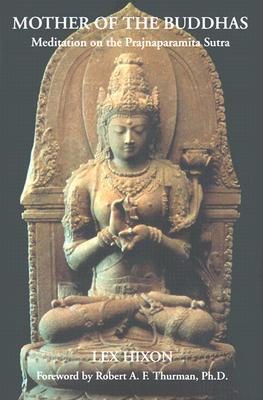 The Prajnaparamita Sutra is the foundation text of Mahayana Buddhism. Prajnaparamita means “the Perfection of Wisdom” and refers to the perfected way of seeing the nature of reality. Prajnaparamita is also personified or embodied by a female figure known as the Great Mother. I devote January to Prajnaparamita, and this book is part of my studies.
The Prajnaparamita Sutra is the foundation text of Mahayana Buddhism. Prajnaparamita means “the Perfection of Wisdom” and refers to the perfected way of seeing the nature of reality. Prajnaparamita is also personified or embodied by a female figure known as the Great Mother. I devote January to Prajnaparamita, and this book is part of my studies.
Mother of the Buddhas: Meditations on the Prajnaparamita Sutra is a “contemplative expansion” of the sutra. It is a meaty read that requires attention, and I will return to it many times.
Start Where You Are: A Guide to Compassionate Living by Pema Chödrön, 1994 (Spirituality)
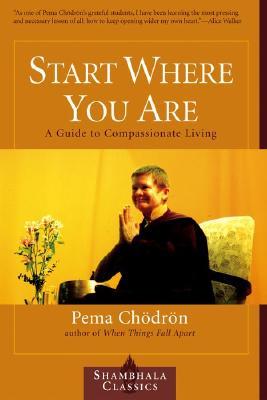 Lojong (“mind training”) is a collection of concise expressions of truth used for contemplative practice in Tibetan Buddhism. There are 59 of these maxims organised around seven points.
Lojong (“mind training”) is a collection of concise expressions of truth used for contemplative practice in Tibetan Buddhism. There are 59 of these maxims organised around seven points.
In Start Where You Are: A Guide to Compassionate Living, Pema Chödrön presents these subtle teachings in a straightforward and down-to-earth way. This doesn’t make the practice easy. It is challenging to take in the suffering of others and transform it, to be grateful, and maintain a joyous mind, but the practice is rewarding.
How to Be an Antiracist by Ibram X. Kendi, 2019 (Nonfiction)
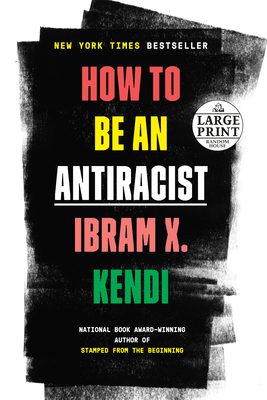 How to Be an Antiracist by Ibram X. Kendi is a memoir and a guide to reexamining our beliefs about race. What is interesting about Kendi’s book is his argument that it’s not enough to be “not racist”. Passively being “not a racist” still allows racist policy and ideology to persist. Being an antiracist is about reflection and taking action. We must identify racism and not only dismantle it but also avoid building it into spaces in the first place.
How to Be an Antiracist by Ibram X. Kendi is a memoir and a guide to reexamining our beliefs about race. What is interesting about Kendi’s book is his argument that it’s not enough to be “not racist”. Passively being “not a racist” still allows racist policy and ideology to persist. Being an antiracist is about reflection and taking action. We must identify racism and not only dismantle it but also avoid building it into spaces in the first place.
There was a limited amount of new information here for me. Still, I enjoyed Kendi’s writing and voice and appreciated his vulnerability. How to Be an Antiracist does have some problems, so I recommend reading it alongside other books on the subject.
Passing by Nella Larsen, 1929 (Fiction)
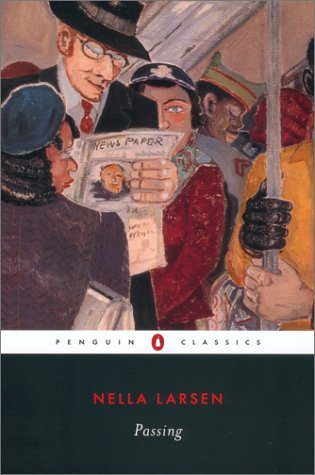 Nellallitea ‘Nella’ Larsen was an American novelist of the Harlem Renaissance. First published in 1929, Passing tells the story of two childhood friends who reconnect in 1920s New York. They are light-skinned Black women, and one has been living her adult life passing as white.
Nellallitea ‘Nella’ Larsen was an American novelist of the Harlem Renaissance. First published in 1929, Passing tells the story of two childhood friends who reconnect in 1920s New York. They are light-skinned Black women, and one has been living her adult life passing as white.
Passing is a short and thought-provoking novel. While the title refers to racial passing, the book also deals with sexuality, class, marriage, and motherhood. Passing was adapted into a good film last year starring Tessa Thompson and Ruth Negga.
Feminism is for Everybody: Passionate Politics by bell hooks, 2000 (Feminism)
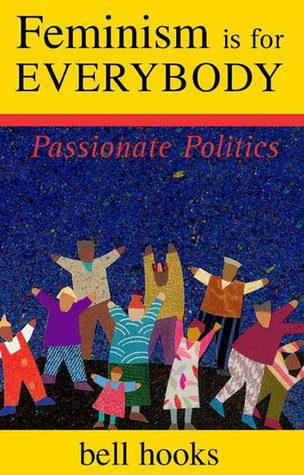 bell hooks is one of my favourite feminist writers. She died last December, and I decided to revisit some of her work this year.
bell hooks is one of my favourite feminist writers. She died last December, and I decided to revisit some of her work this year.
Published in 2000, Feminism is for Everybody is her introduction to feminism. hooks noted that feminist theory tends to be academic and inaccessible to the public. She wrote Feminism is for Everybody as an antidote. It’s brief, conversational, and easy to understand.
The Hidden Life of Trees: What They Feel, How They Communicate—Discoveries from a Secret World by Peter Wohlleben, 2015 (Nonfiction)
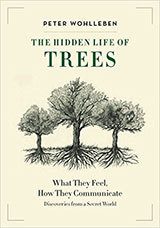 Of all the books I read this year, I learned the most from The Hidden Life of Trees: What They Feel, How They Communicate—Discoveries from a Secret World by Peter Wohlleben.
Of all the books I read this year, I learned the most from The Hidden Life of Trees: What They Feel, How They Communicate—Discoveries from a Secret World by Peter Wohlleben.
Wohlleben is a German forester who wants us to love and appreciate trees as much as he does. The Hidden Life of Trees is about the underground network found in forests. Wohlleben argues that trees are social, take care of each other, and makes the case for a reimagination of trees.
Wohlleben’s critics object to his narrative style and humanisation of trees. We shouldn’t need to anthropomorphise trees to care about them, but Wohlleben succeeds where many nature writers fail. The Hidden Life of Trees could be the stepping stone some people need to dig deeper into environmental writing.
Last year, a documentary film based on the book was released.
Ancestral Tarot: Uncover Your Past and Chart Your Future by Nancy Hendrickson, 2021 (Tarot)
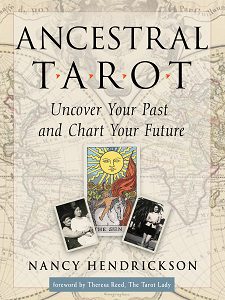 Ancestral Tarot: Uncover Your Past and Chart Your Future by Nancy Hendrickson is a practical guide for using the tarot to connect with ancestors. It contains information, spreads, journal prompts, exercises, techniques, and suggestions.
Ancestral Tarot: Uncover Your Past and Chart Your Future by Nancy Hendrickson is a practical guide for using the tarot to connect with ancestors. It contains information, spreads, journal prompts, exercises, techniques, and suggestions.
You don’t need to have any experience with tarot or ancestor work to apply the lessons in the book. However, you’ll get more out of Ancestral Tarot if you have basic tarot knowledge and have done some ancestor work. I enjoyed Ancestral Tarot and will revisit it.
Labrys and Horns: An Introduction to Modern Minoan Paganism by Laura Perry, 2020 (Religion)
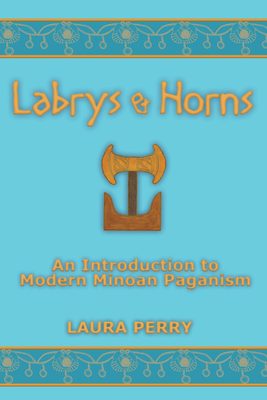 There are many cultural-religious revivals in contemporary Paganism, such as Hellenism, Kemetism, and Heathenism. But there is little on modern Paganism inspired by the Minoan civilisation. Thank goddess for Laura Perry and her community.
There are many cultural-religious revivals in contemporary Paganism, such as Hellenism, Kemetism, and Heathenism. But there is little on modern Paganism inspired by the Minoan civilisation. Thank goddess for Laura Perry and her community.
In Labrys and Horns: An Introduction to Modern Minoan Paganism, Perry offers a revivalist tradition based on ancient Crete. It includes a pantheon, sacred calendar, devotionals, rituals, and resources. This is an excellent book for Pagans interested in incorporating Minoan elements into their practice.
Confidence Man: The Making of Donald Trump and the Breaking of America by Maggie Haberman, 2022 (Politics)
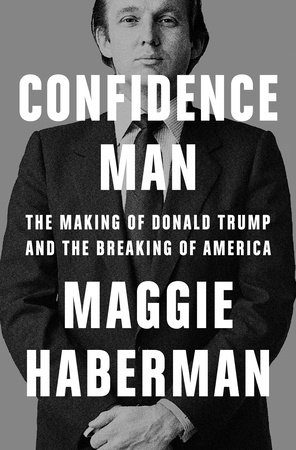 Maggie Haberman is a Pulitzer-Prize-winning New York Times reporter who has covered Donald Trump closely and extensively for years. Confidence Man: The Making of Donald Trump and the Breaking of America is a little different from other books about Trump. Haberman, a New Yorker, devotes a significant portion of Confidence Man to Trump’s ascent in New York during the late 1970s and 1980s. She offers a more in-depth portrait of him that helps explain some aspects of Trump’s behaviour.
Maggie Haberman is a Pulitzer-Prize-winning New York Times reporter who has covered Donald Trump closely and extensively for years. Confidence Man: The Making of Donald Trump and the Breaking of America is a little different from other books about Trump. Haberman, a New Yorker, devotes a significant portion of Confidence Man to Trump’s ascent in New York during the late 1970s and 1980s. She offers a more in-depth portrait of him that helps explain some aspects of Trump’s behaviour.
The problem is that there isn’t any depth to Trump. Although I didn’t know many interesting details, I already knew the bigger picture: Trump is a void. Haberman herself summarised him as “a narcissistic drama-seeker who covered a fragile ego with a bullying impulse.” Confidence Man is a great book about the nothingness of Trump.

